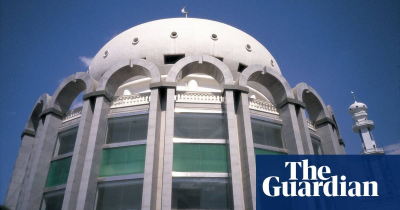The Guardian - China-China closing hundreds of mosques in northern regions rights group says
November 21, 2023 3 min 614 words
这篇报道揭示了中国政府在宁夏和甘肃关闭或改变数百座清真寺的行动,作为“中国化”宗教少数派的一部分。这一行动引发了人权组织的关切,显示中国共产党一直在紧密控制宗教和少数民族。自2016年以来,习近平呼吁“中国化”宗教以来,清真寺的改建速度和强度有所增加。人权观察的研究人员通过卫星图像分析发现,宁夏两个村庄的清真寺在2019年至2021年间经历了穆斯林祈祷场所的改建,包括移除圆顶和尖塔。研究者估计,宁夏约有1300座清真寺在2020年以来已经关闭,这一估计未包括因非官方地位而在2020年前关闭或拆除的清真寺。这一政策在新疆等地也有实施,加剧了宗教的限制。报道中引述的一位宁夏的伊玛目表示,清真寺整合政策导致距离2.5公里内的清真寺必须合并。人权观察的代理中国主任王婷表示,关闭、摧毁和改建清真寺是中国限制伊斯兰教实践的系统性努力的一部分。而中国政府则坚称遵循法律规定,保障各民族享有宗教信仰自由,同时坚决拒绝和打击宗教极端主义。整体而言,这一报道突显了中国政府对宗教多样性的严格控制,引发人权担忧。
Chinese authorities have closed or altered hundreds of mosques in the northern regions of Ningxia and Gansu, homes to the highest Muslim populations in China after Xinjiang, as part of broader efforts to “sinicise” China’s religious minorities, according to a report.
Researchers at Human Rights Watch (HRW) said the Chinese government was significantly reducing the number of mosques in Ningxia autonomous region and Gansu province.
The Chinese Communist party (CCP) has long maintained a tight grip over China’s religious and ethnic minorities, and since 2016 when Xi Jinping, China’s leader, called for the sinicisation of China’s religions, the pace and intensity of mosque alterations has increased.
In April 2018, Beijing issued a directive stating that government officials should “strictly control the construction and layout of Islamic activity venues” and “adhere to the principle of demolishing more and building less”.
The researchers at HRW analysed satellite imagery to examine the mosque consolidation policy in two villages in Ningxia. It found that between 2019 and 2021, the domes and minarets were removed from all seven of the mosques. Four of the mosques were significantly altered: three main buildings were razed and the ablution hall of one was damaged.
Hannah Theaker, a lecturer at the University of Plymouth who has researched the topic with David Stroup, of the University of Manchester, said the removal of ablution facilities was a way of “basically immediately ensuring that you cannot use them, [so that] it has effectively been removed as a place of worship, without being visible.”
Theaker and Stroup estimate that about 1,300 mosques in Ningxia – a third of the total number registered – have been closed since 2020. That estimate does not include mosques that have been closed or demolished because of their unofficial status, most of which happened before 2020.
HRW was not able to determine the exact number of mosques that have been closed or modified in recent years, but government reports suggest it is likely to be hundreds. In Zhongwei, a city with more than 1 million residents, authorities said in 2019 that they had altered 214 mosques, consolidated 58, and banned 37 “illegally registered religious sites”. In the town of Jingui, authorities said they had “rectified” more than 130 sites “with Islamic architectural features”.
An imam in Ningxia interviewed by Radio Free Asia said the mosque consolidation policy meant that any mosques within 2.5km of each other had to be merged. “When mosques are closed, many young and middle-aged people will no longer go to mosques to participate in religious activities, and the next generation will slowly lose faith and have no confidence in Islam … in this way, Muslims are slowly being sinicised,” he was quoted in RFA as saying.
Maya Wang, the acting China director at HRW, said the “closure, destruction and repurposing of mosques is part of a systematic effort to curb the practice of Islam in China.”
A Chinese government spokesperson said: “People of all ethnic groups in China are fully entitled to the freedom of religious belief as prescribed by law. Following policies that protect freedom of religious belief, China, like other countries, administers religious affairs in accordance with law. We are resolute in rejecting and fighting religious extremism. Believers’ normal religious activities are guaranteed in accordance with law and their customs respected.”
The mosque consolidation policy is not confined to Ningxia and Gansu. The Australian Strategic Policy Institute estimates that 65% of Xinjiang’s 16,000 mosques have been destroyed or damaged since 2017.
In May, hundreds of police clashed with protesters in a Hui Muslim town in Yunnan province, in south-west China, over attempts to dismantle parts of an important local mosque.

